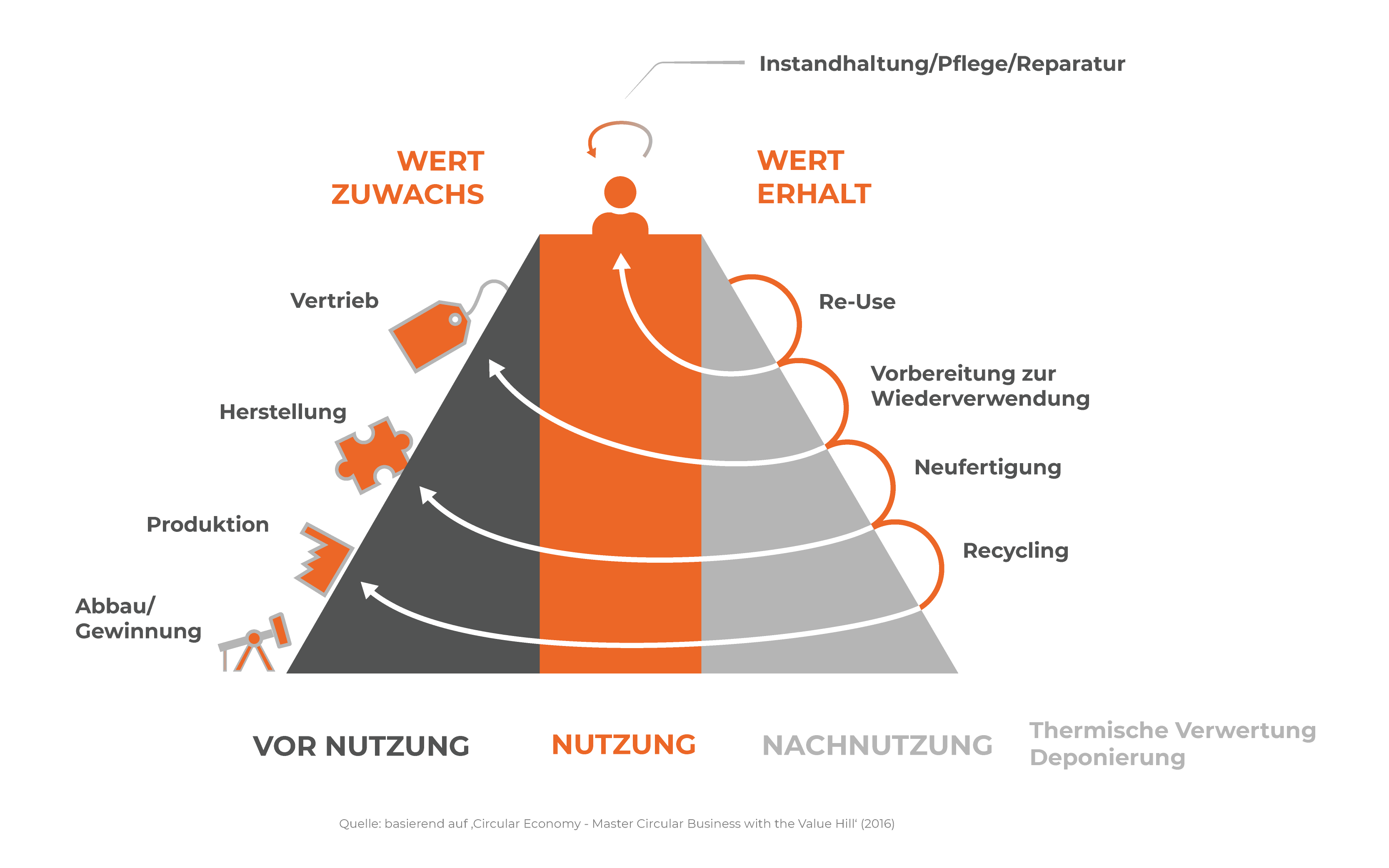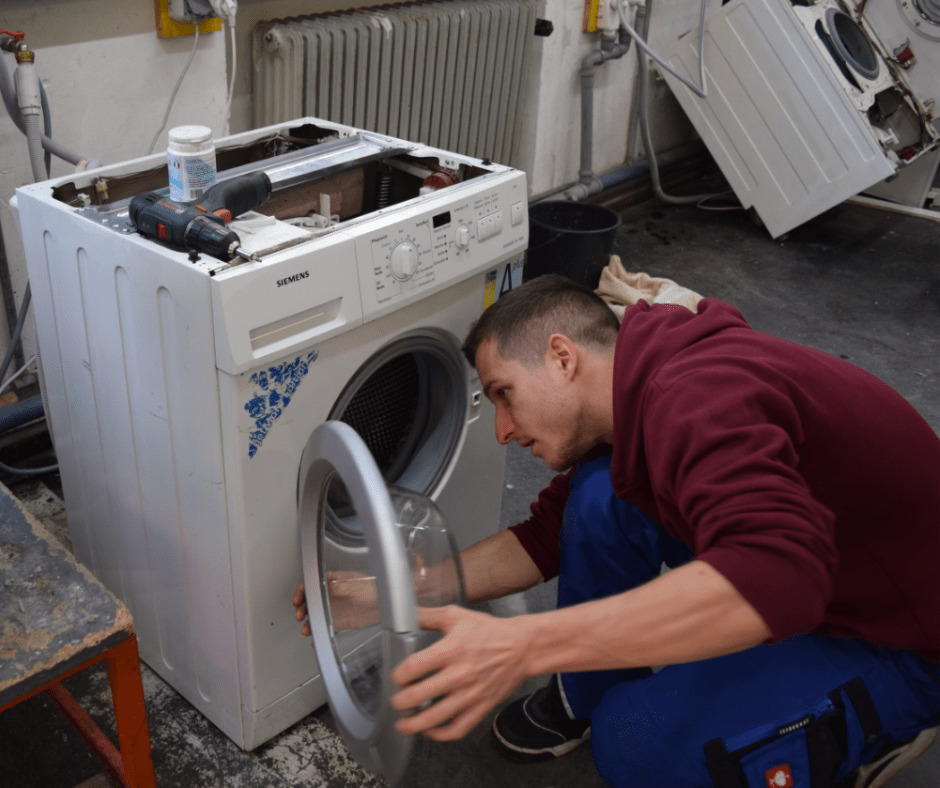R.U.S.Z and RepaNet welcome the German government's ambitious circular economy (CE) strategy. Re-use and repair are prominently anchored in it. Essentially, what we have been lobbying for for decades and are currently fighting for has now been decided!
The national strategy for CE, which aims to develop the economy and society into a climate-neutral, sustainable circular economy, was adopted by the Council of Ministers on 7 December 2022. In contrast to previous strategies, drastic reduction targets are mentioned for the first time. According to this, domestic material consumption must be reduced by five tonnes to 14 tonnes per person per year by 2030, and the total material footprint must even be reduced to seven tonnes per person per year by 2050 - thus to about one fifth of current consumption.
Re-use and repair are prominently anchored in the circular economy strategy. The holistic approach is a working plan for the radical transformation of the economic system. In addition to the Ministry of Climate Protection, the strategy is also supported by the Ministries of Economy, Agriculture and Social Affairs. This remarkable closing of ranks underlines the fact that the circular economy requires the restructuring of the entire economic system with special attention to renewable raw materials.
"The most sustainable product is the one that already exists"
These ambitious goals cannot be achieved with eco-design and optimisation of recycling alone. Rather, a radical shift from linear industrial mass production of short-lived goods to the longest possible management of existing goods is needed.
"The circular 'value economy' to be aimed for opens up space for new business models. At its core are services in the field of repair, maintenance, rental, second-hand trade, refurbishing, redesign and co., according to the motto: the most sustainable product is the one that already exists"
... emphasises RepaNet Managing Director Matthias Neitsch. The basis for this is a social change towards a detachment of the question of prosperity from resource consumption - to this end, social-economic re-use enterprises make a central contribution.

R.U.S.Z. as a pioneer of the circular economy
"The national CE strategy is a milestone and the political instruction manual for the great transformation of the economy! Essentially, what we have been lobbying for for decades and are currently fighting for has now been decided!
... says RepaNet chairman and R.U.S.Z boss Sepp Eisenriegler proudly. Because the R.U.S.Z has, in particular, anticipated what can be read on page 64 of the national CE strategy on the topic of "extending product lifetimes" and circular "consumption and business models" in its many years of practice:
Extending the useful lives of e-appliances, new consumption models, true costs
With 10,000 repairs per year and 100 tonnes of old electrical appliances taken over for reuse, we are not only the largest centre for repair and reuse in Austria; with our product service "Clean Laundry" we have a sustainable and genuinely circular economy-compatible consumption and business model at the start: "Renting washing machines and dryers instead of buying them" guarantees the use of high-quality, durable and repairable appliances and thus long and convenient use at an individually adapted, reasonable price, including regular service, replacement in case of damage and proper disposal.
Cost truth needs to be established in two respects:
1) If you buy cheap, you buy expensive: a cheap washing machine for 300 EUR lasts on average 3 years, but a quality machine for 900 EUER lasts not 9 but 20 years and longer. It's a simple calculation: only the rich wash cheaply. The rest have to play the lucky game with discount junk and tend to calculate too late.
2) The washing machine as a concept has long been technically mature, "efficiency improvements" are mostly greenwashing, bogus innovations are advertised, while the real "innovation" is that the useful life of washing machines has been in decline for 30 years in order to secure profits in saturated markets. In exchange, the mountains of waste, CO2 emissions, the economy and the exploitation of cheap labour and resources are growing; as with many other cheap products, the costs are externalised to people and nature. "Throw away and buy new" is paid for with environmental destruction, global warming and growing social inequality on a global scale.

Against premature obsolescence, for increased market surveillance
Premature obsolescence, whether you want to blame producer, trade, or demand, is a symptom of a linear, growth-driven, and imperial mode of production and living. Above all, however, it is a problem of the market and power. Such products of inferior utility value may no longer come onto the market. Therefore, research and testing methods against early obsolescence are needed, and these are being developed by the EU multi-stakeholder project "PROMPT", in which the R.U.S.Z. is involved. The aim is to enforce the design of durable and repairable appliances.
Incentives, quality assurance and specialised training
Financial incentives for the sale of repaired equipment (Second Life) and the rental of equipment are suggested in the KLW strategy and are intended to promote an infrastructure that is suitable for the circular economy. We have been calling for this for years, not least in order to be able to offer our rental model more cost-effectively and thus make the switch from owning to using more attractive.
One answer to the demand for quality assurance of repair services is undoubtedly the model of the Vienna Repair Network, co-founded by Sepp Eisenriegler, together with its admission criteria: independent and serious repairing and not selling (under the pretext of an unaffordable repair) must be the basis of business.
The problem of the lack of skilled workers for repairs has accompanied the R.U.S.Z since the early days. To date, we have helped ourselves with apprenticeship training and work training for unemployed mechatronics technicians. In addition, we launched our pilot project "ReSeTech" last year and successfully completed it together with AMS and BFI Vienna. In January 2023 it will go into the second round (as "ReTech", without BFI, but with AMS Lower Austria). At our suggestion, a "repair technology" module is also being developed in the apprenticeship training for mechatronics technicians.
Best Practice
Last but not least, the national CE strategy calls for a visualisation of best practices in the repair sector. Just last year, we became the first Austrian company to be included in the United Nations' list of SDG Good Practices (flagship projects in terms of sustainability) and are thus recommended for replication and upscaling worldwide. With our eco-social franchising system for repair and reuse in the D-A-CH region, we have set out to provide the repair infrastructure of the future and are addressing committed repair professionals who benefit from an elaborated and proven concept and want to help shape a real eco-social transformation!
Repair is the supreme discipline of the circular economy!